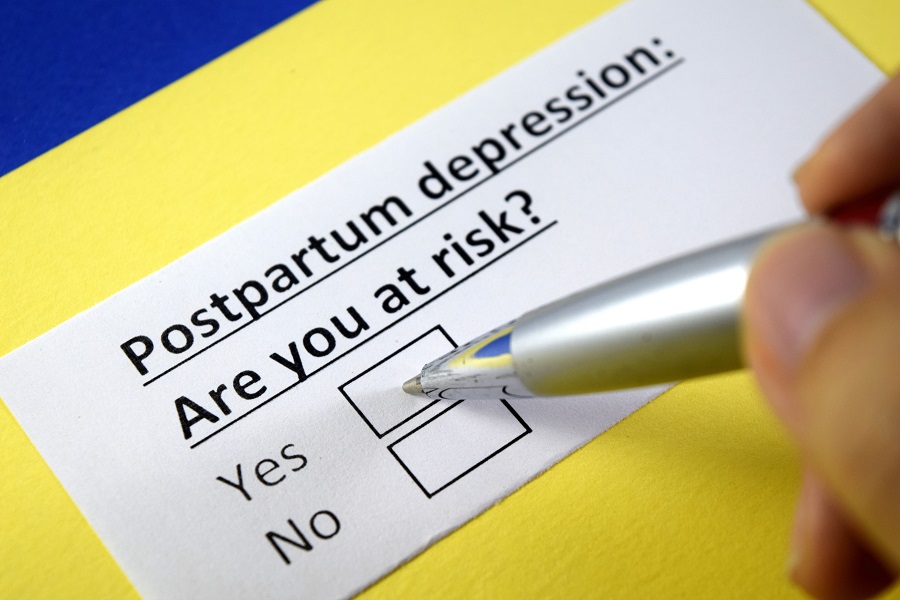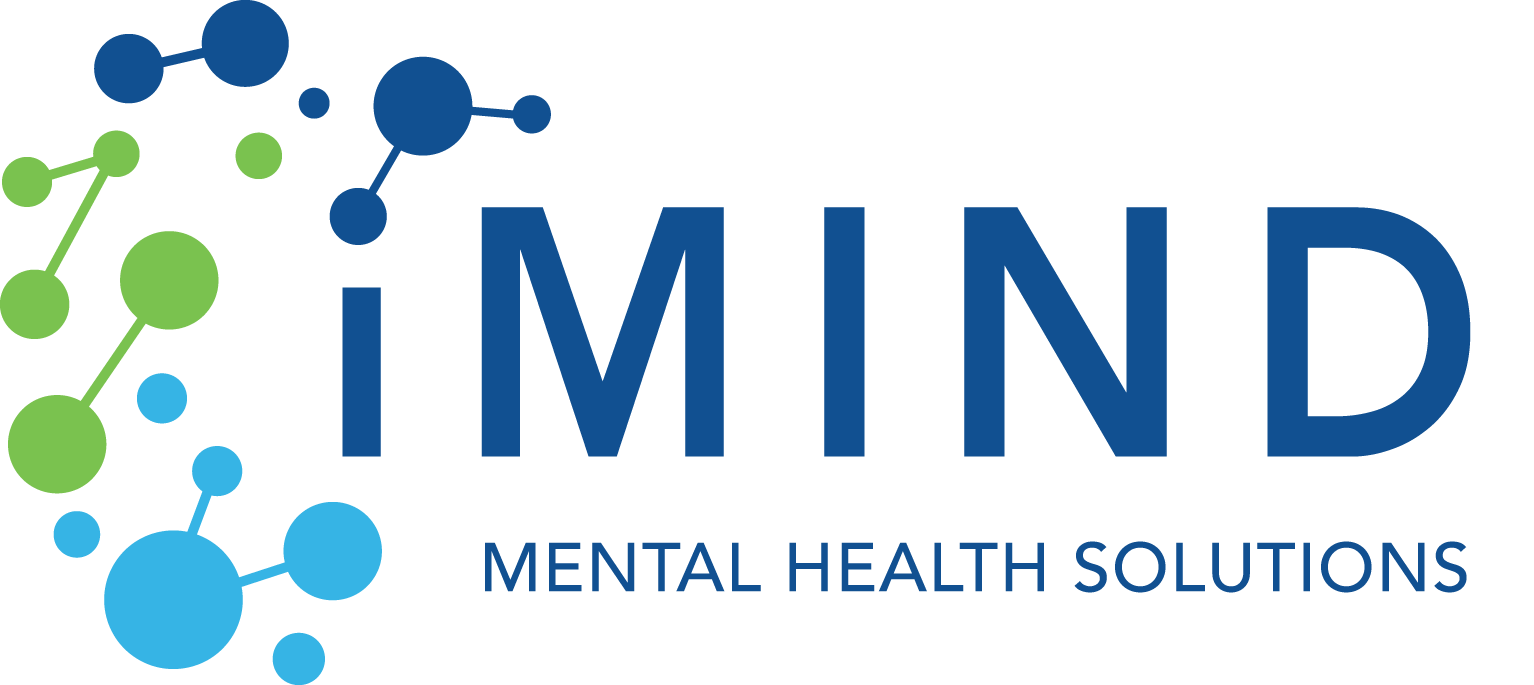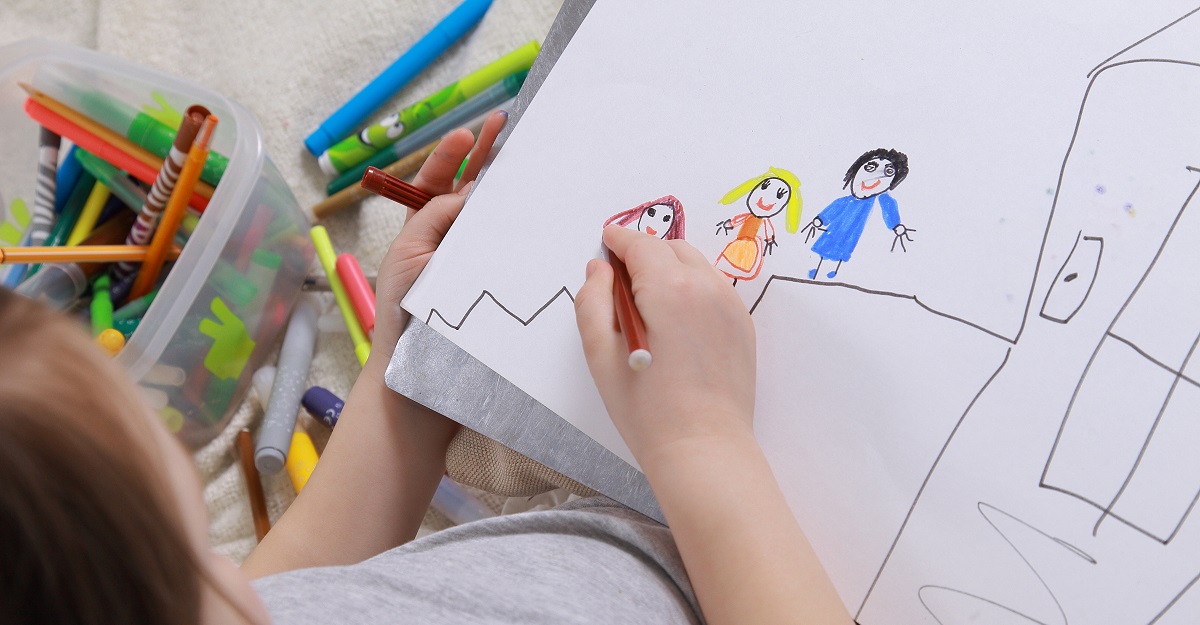Navigating Postpartum Depression
Published By Justin Baksh, LMHC, MCAP
October 17, 2023

Having a baby is portrayed as one of life’s most joyous and fulfilling experiences. The anticipation of holding your newborn in your arms. The promise of a new chapter in your life. The overwhelming love that accompanies childbirth… All of these can be powerful emotions. However, the motherhood path is not always paved with unending happiness. In the midst of this profound life transition, a significant number of new mothers find themselves grappling with an unexpected challenge – postpartum depression.
Understanding Postpartum Depression
“With my third pregnancy, I had a lot of issues; complications with pregnancy. I guess, since things hadn’t gone as planned, it threw me off. And I think you have all these expectations about how your pregnancy is going to be, especially if you had two before that were totally fine. When I came home, I was definitely off. I really didn’t want to see anybody. I also had a phobia of anyone touching my baby. I didn’t want to see people, I didn’t want to leave the house. And then, you know, that progressed several months after she was born, and I basically just isolated myself.”
–Sara‘s Story, Talking Postpartum Depression, U.S. Department of Health & Human Services, Office on Women’s Health
It’s important to emphasize that postpartum depression is not a sign of weakness, nor is it a reflection of a mother’s love or her ability to care for her child. It is an illness that can affect any new mother, regardless of her socioeconomic status, education, or support system.
Postpartum depression is a distinct and clinically recognized form of depression that occurs in the weeks and months following childbirth. Unlike the “baby blues,” which are characterized by transient mood swings, irritability, and weepiness that typically resolve within a week or two, postpartum depression is a more persistent and severe condition, spanning months and even years.
Postpartum depression is more common than many people realize, occurring in up to 20% of women. These statistics underscore the importance of acknowledging its prevalence and being prepared to provide support.
Unfortunately, many of them go undiagnosed.
What Causes Postpartum Depression?
Several factors can contribute to the development of postpartum depression. These include:
What Causes Postpartum Depression?
- Hormonal Changes: The dramatic hormonal fluctuations that occur during pregnancy and after childbirth can impact mood regulation and potentially trigger depression.
- Past Mental Health History: A history of depression, anxiety, or other mental health conditions can increase the risk of postpartum depression.
- Stress and Life Events: High levels of stress, a lack of social support, or significant life events, such as financial strain or relationship difficulties, can contribute to the development of PPD.
- Unrealistic Expectations: Society often places unrealistic expectations on new mothers to be perfect caregivers. Feeling overwhelmed by these expectations can contribute to PPD.
Postpartum Depression Signs and Symptoms
Early intervention and support are crucial for women suffering from postpartum depression. Recognizing the signs and symptoms is a key step in this process. While the experience of PPD can vary from person to person, there are common indicators to watch for.
It’s important to note that postpartum depression can emerge gradually or suddenly, and the severity of symptoms can vary widely. Additionally, some mothers may put on a façade of well-being in social settings, making it challenging for others to recognize their inner turmoil.
Signs of Postpartum Depression
- Overwhelming Sadness or Hopelessness: A persistent feeling of sadness, emptiness, or hopelessness that lingers for more than a couple of weeks is a hallmark of postpartum depression. This emotional weight can be debilitating.
- Loss of Interest or Pleasure: A noticeable lack of interest in activities that were once enjoyed can be a sign of PPD. Mothers may find themselves uninterested in spending time with their baby, which can lead to guilt and shame.
- Severe Fatigue: While fatigue is expected for new mothers, postpartum depression often brings an extreme and unrelenting exhaustion that doesn’t improve with rest. It can make even simple daily tasks feel insurmountable.
- Changes in Sleep and Appetite: PPD can disturb sleep patterns, causing insomnia or excessive sleep. It may bring about changes in appetite that lead to significant weight gain or loss.
- Difficulty Bonding with the Baby: Postpartum depression can make it difficult for a mother to bond with her newborn, leading to feelings of guilt and inadequacy. Mothers may also have intrusive thoughts about harming the baby, though they are unlikely to act on these thoughts.
- Physical Symptoms: PPD can manifest with physical symptoms such as headaches, stomachaches, and muscle pain, which are often related to the emotional distress.
- Social Withdrawal: A tendency to isolate oneself from friends and family, coupled with a reluctance to seek help or support, is common in postpartum depression.
- Intense Anxiety: Postpartum depression often co-occurs with anxiety disorders, leading to excessive worry, racing thoughts, and physical symptoms of anxiety, like a rapid heartbeat and sweating.
- Feelings of Guilt and Worthlessness: Mothers with postpartum depression may constantly blame themselves for their struggles, feeling worthless or inadequate as caregivers.
Navigating the Support System
“You bring this new life [into the world] and then you want to keep it alive. You don’t know what to do. You’re just kind of thrown into this situation and it’s a shock to you… your hormones, everything, and then you are trying to navigate what to do, so you’re always on.
I was having intrusive or scary thoughts… I was having thoughts around harm – which is really common, actually, in postpartum depression. I knew something was off when I had my really dark, anxious moment that I thought I had killed my daughter. When she rolled off of me and was asleep in the bed. I woke up my husband and I told him, ‘We have to give her away. If anything happens to her, I will take my life. I can’t do this anymore.
When I finally got treatment, I was able to categorize. I was having new mom anxiety…. I would avoid going anywhere, doing anything.”
-Allison’s Story, Talking Postpartum Depression, U.S. Department of Health & Human Services, Office on Women’s Heath
If you or someone you love is experiencing postpartum depression, rest assured that help is available. There is a lot of support for women dealing with this condition.

Healthcare Professionals: Guiding the Way
Healthcare providers play a vital part in identifying and treating postpartum depression.
Obstetricians and pediatricians often see new mothers regularly. They can screen for postpartum depression, offer guidance, and connect mothers with appropriate resources.
Mental health specialists, including therapists, psychologists, and psychiatrists with expertise in postpartum mental health can provide therapy, counseling, and, if necessary, medication to manage postpartum depression symptoms.

Support Groups: Finding Connection
Support groups offer the valuable opportunity to connect with others who have dealt with or are currently confronting postpartum depression.
Meeting other mothers who are going through similar challenges can reduce feelings of isolation. Sharing stories and coping strategies can be tremendously beneficial.
In support groups, mothers can openly discuss their feelings without fear of judgment, receiving validation for their experiences.

Friends and Family: The Power of a Supportive Network
Friends and family members can be a vital source of emotional support for mothers with postpartum depression.
Loved ones can lend a compassionate ear, allowing mothers to express their feelings and concerns.
They can offer practical help, too. Providing assistance with household chores, cooking, or childcare can ease some of the burdens faced by mothers dealing with postpartum depression.
Finally, the words of encouragement and reassurance offered by friends and family can bolster a mother’s self-assurance and drive, motivating her to access professional help.

Online Resources: Accessible Information and Guidance
The internet provides a wealth of information and resources for mothers with postpartum depression.
Websites, forums, and social media platforms offer educational materials, articles, and personal stories that can help mothers better understand PPD.
You can also search for compassionate therapists and psychiatrists in your area with a quick online search.

Community Programs: Local Assistance
Many communities offer programs and services specifically designed to support mothers experiencing postpartum depression. These programs may include:
Parenting classes can provide valuable education and support for new parents, helping them build confidence in their caregiving skills.
As well, some community centers host support groups, playgroups, and other events tailored to new parents.
Local organizations may also provide help lines staffed by trained volunteers or professionals who can offer immediate support and information.
The Importance of Professional Help
When dealing with postpartum depression, seeking professional help is a critical step toward recovery. Professional intervention can provide the guidance and treatment necessary to address the complex challenges of postpartum depression effectively.
Professional help is a cornerstone of postpartum depression recovery, and it offers several key benefits.
Expert Assessment
Healthcare professionals, including mental health specialists, are trained to assess and diagnose postpartum depression accurately. Their expertise ensures a proper understanding of your condition.
Customized Treatment
Mental health professionals can tailor treatment plans to your specific needs, whether that involves therapy, medication, or a combination of approaches.
Safe and Confidential Space
Therapy sessions provide a confidential environment where you can openly discuss your feelings and concerns without fear of judgment.
Progress
Professionals can monitor your progress over time, adjusting treatment as necessary to ensure your well-being.
Initiating the Conversation
Starting a conversation about postpartum depression with a healthcare professional can be intimidating, but it’s a crucial step in your journey to recovery. Here are some tips to help you begin.
Talking with a Mental Health Professional About Postpartum Depression
- Choose the Right Professional: Seek out a healthcare provider with experience in perinatal mental health or postpartum depression. This expertise is invaluable in understanding and addressing your unique needs.
- Prepare Ahead of Time: Before your appointment, jot down your thoughts and feelings. Be honest about your experiences and any symptoms you’ve noticed. This can help you articulate your concerns during the appointment.
- Enlist Support: If you’re uncomfortable attending the appointment alone, ask a trusted friend or family member to accompany you for emotional support.
- Be Open and Honest: During the appointment, be open about your emotions and experiences. Remember that healthcare professionals not there to judge, but to help.
- Ask Questions: Don’t hesitate to ask questions about your condition, treatment options, and what you can expect moving forward. Understanding the process can alleviate anxiety.
- Discuss Treatment Preferences: Share your preferences and concerns regarding treatment. Professionals will work with you to find an approach that meets your needs, goals and comfort level.
Self-Care Strategies
In addition to seeking professional help, prioritizing self-care strategies can help you manage and recover from postpartum depression.
Self-Care for Postpartum Depression
Prioritize Sleep
Individuals with situational depression often experience prolonged feelings of sadness or despair that seem overwhelming. These feelings might be expressed through episodes of crying or a persistent state of sadness.
Healthy Eating
Maintain a nutrient rich diet. Proper nutrition can lift your mood and boost energy levels.
Physical Activity
Engage in gentle physical activities like walking or yoga, as they can improve mood and reduce stress.
Lean on Your Support System
Accept help from friends and family when offered. Don’t hesitate to ask for help when you need it.
Set Realistic Expectations
Avoid pressuring yourself to be the “perfect” mother. Set achievable goals for yourself and your daily tasks.
Self-Compassion
Be kind to yourself. Remember that it’s okay to have difficult moments, and seeking help is a sign of strength, not weakness.
Engage in Enjoyable Activities
Dedicate time to activities you enjoy, even if it’s just for a few minutes a day. It can be as simple as a quiet moment of journaling or listening an audiobook.
Mindfulness and Relaxation
Make a habit of practicing mindfulness and relaxation techniques, such as slowing down, and being present in the moment, especially when engaging with your baby. This will help you manage stress and calm anxious thoughts and will also help in bonding with your little one.
Stay Connected
Stay in touch with friends and loved ones. Isolation can worsen postpartum depression symptoms.
Monitor Your Progress
Keep track of your feelings in a journal. This can help identify triggers and measure improvements.
Remember that self-care is not selfish; it’s an essential part of recovery. Prioritizing your wellbeing allows you to better care for yourself and your baby
Reducing Stigma
Reducing the stigma surrounding postpartum depression is essential for encouraging affected mothers to seek help and support. Stigma can be a significant barrier, leading to shame and silence. Here’s how we can work together to reduce stigma:
Open Conversations
Encourage open and non-judgmental conversations about postpartum depression. By sharing experiences and discussing the challenges openly, we can break down the walls of silence and shame.
Sharing Stories
Encourage those who have experienced postpartum depression to share their stories. Personal narratives can inspire hope and reassure others that they are not alone.
Support Systems
Foster supportive environments where mothers can openly discuss their feelings and seek help without fear of judgment.
Education
Promote education about postpartum depression within your community, highlighting that it is a common and treatable condition. Knowledge reduces misunderstanding and judgment.
Eliminating stigma is a collective effort. Each step taken toward a more compassionate and understanding society helps mothers facing postpartum depression find the support and care they need.
- Mughal, S., Azhar, Y., & Siddiqui, W. (2022, October 7). Postpartum Depression. PubMed; StatPearls Publishing.
- Talking Postpartum Depression | Office on Women’s Health. (n.d.). www.womenshealth.gov.






